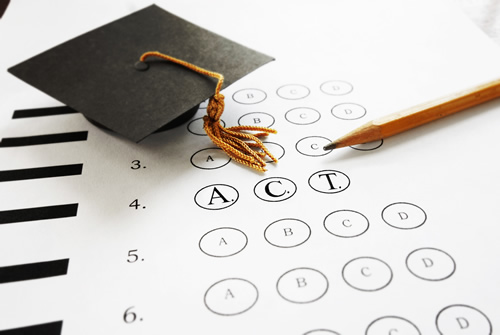It’s one thing to read about doing a triathlon or to watch one on TV; it’s another to dive into the water, hop on the bike seat, and hit the pavement. The same is true of college test prep for exams such as the SAT or ACT—without self-direction, personalized goals, and active practice, you’re not going to reach your target score.
When I was a principal, students were on their own when it came to preparing for one of the most influential exams of their life. Most schools in the U.S. aren’t required to offer college test prep courses, so students working hard to get accepted into their dream schools sometimes have to scramble to prepare for these exams on their own at the last minute.
Related content: This pathway helps students better prepare for college
It’s no surprise that they often end up falling short of their goal. With the right mindset and a personalized, active approach, students can prepare for an exam like they’re preparing for an Ironman triathlon.
Becoming their own college test prep teachers
I’ve found that a lot of students start the college test prep process by saying to parents or teachers, “Tell me what to do.” If an adult tells them exactly what they need to work on and how they need to work on it, their learning won’t be personalized and active. Preparing for the SAT and ACT is the first time that many students need to take personal responsibility for what they know, what they need to learn, and how they can best learn it. What they often find is that they know their own weaknesses and strengths better than they thought they did.
With the help of a high-quality college test prep tool, students can prioritize topics to practice by first figuring out what they need to learn, and then actively learning that concept until they can move on to their second priority. Like an Ironman triathlete training for each phase of the race separately, students can personalize their active learning by taking in information in small chunks rather than trying to tackle too much information that they’re not going to retain.
Getting personalized
Students should start their college test prep journey by sorting out what concepts they have nailed down and what they need to improve. This might sound obvious, but students resist failure. They’d much rather have quick success practicing problems they understand than muddle through foreign concepts. With a high-quality college exam prep tool, students will be able to analyze what they got wrong, actively practice and learn it, and then go back and try again. They can also work their way up to mastery. If students can start practicing tougher concepts on lower-level questions, they have a much better chance of correctly answering the more advanced questions that are bound to be on the exam.
Students have a lot to learn before the SAT or ACT, and they shouldn’t waste time on concepts that they have mastered and can skip over. As a principal, I didn’t want a classroom of students to all be doing the exact same thing. If there isn’t differentiation, students can’t personally reach their highest potential and reach their max score. Personalized learning tools motivate students to take their practice into their own hands.
Active learning vs. passive learning
When students are actively learning, there’s no gap between absorbing the actual content and the act of learning. With active learning, you’re not just reading, watching, or listening. You are immersed in the learning, and working through questions, answers, and explanations.
Reaching a target score on a hefty exam like the SAT or ACT requires excellent time-management skills, focus, and perseverance. For example, the grammar section on the ACT requires students to answer 75 questions in 45 minutes. Students have to quickly identify what type of question they’re answering and then solve it without messing around or overthinking.
Active learning through practice tests builds stamina, no matter what a student is learning. The concept of a math problem might make sense, but a multiple-choice question could be overwhelming. However, if a student has active practice working on functions and formulas within the context of the exam, the exam itself will feel like another day of practice.
To achieve their goals on the SAT and ACT, students need to own their learning. One of the most important ways educators can help high schoolers prepare is to cultivate that mindset early and often. Like athletic coaches, educators can offer their students support and advice, but they can’t swim, bike, or run for them. If students are familiar and comfortable with taking ownership of their learning, they’ll be ready to take on their exam prep with the same independence.
- 4 ways to encourage play in education - April 25, 2024
- CoSN IT Leader Spotlight: Lisa Higgins - April 25, 2024
- It’s time to pay student teachers - April 25, 2024

